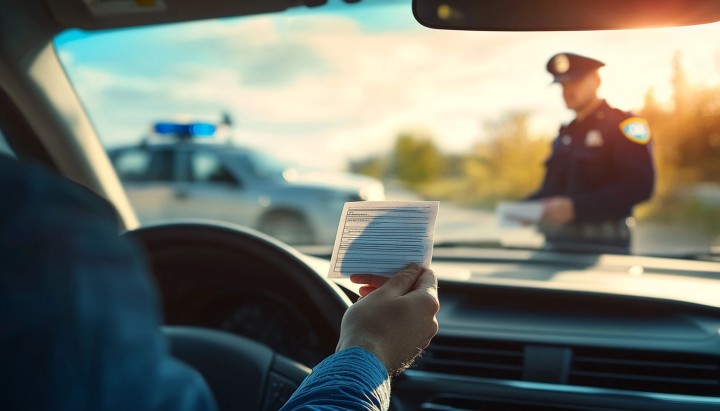Introduction
If a friend or family member has been arrested, finding out their bail amount is a crucial step in securing their release. Thanks to modern technology, you can often find this information online. This article will guide you through the process of finding someone’s bail amount using online resources, providing step-by-step instructions and useful tips.
Understanding Bail
What Bail Is and How It Works
Bail is a set amount of money that acts as insurance between the court and the person in jail. It ensures that the defendant returns to court for their trial. The bail amount can vary based on the severity of the crime, the defendant’s criminal history, and other factors.
Why Knowing Bail Amount Is Important
Benefits of Finding Bail Information
Knowing the bail amount is crucial for several reasons:
- Planning: Helps you arrange for the necessary funds.
- Timeliness: Ensures quick release from jail.
- Avoiding Additional Charges: Prevents extra fees associated with extended detention.
How to Find Bail Amount Online
Step-by-Step Guide
- Gather Information: Know the full name of the person arrested, the county or city of arrest, and the date of arrest.
- Access Official Resources: Visit the official website of the county jail, sheriff’s department, or court handling the case.
- Use Inmate Search Tools: Enter the necessary details in the search tool to find the inmate’s profile and bail amount.
- Check Public Records: Look for public records related to the arrest, which may include bail information.
- Contact Authorities: If the information is not available online, call the jail or courthouse directly.
Using Inmate Search Tools
State and County Resources
Many states and counties offer online inmate search tools. Here are some common steps to use these tools:
- Visit the Official Website: Go to the website of the local sheriff’s department, county jail, or state corrections department.
- Navigate to Inmate Search: Look for an “Inmate Search” or “Jail Roster” section.
- Enter Details: Provide the inmate’s name and other required information.
- View Results: Check the results for bail amount and other details.
Examples of Inmate Search Tools
- VINE (Victim Information and Notification Everyday): A nationwide service that provides information on inmates.
- County Jail Websites: Many counties have their own search tools, such as Los Angeles County Inmate Information Center or Cook County Sheriff’s Inmate Search.
Checking Jail and Court Websites
Direct Sources for Information
- County Jail Websites: Often have inmate rosters and bail information.
- Court Websites: May provide case details, including bail amounts for ongoing cases.
Contacting a Bail Bondsman
Professional Assistance
Bail bondsmen are professionals who can help you find bail information and post bail. They often have direct access to court and jail records and can expedite the process of securing release.
How to Contact a Bail Bondsman
- Search Online: Look for reputable bail bond services in your area.
- Provide Information: Give them the inmate’s details.
- Discuss Terms: Understand the terms and fees involved in using their services.
Using Third-Party Websites
Pros and Cons of External Services
Pros
- Convenience: Access multiple databases at once.
- Comprehensive: Often include additional details like arrest records and court dates.
Cons
- Fees: May charge for access to detailed information.
- Accuracy: Information may not be as up-to-date as official sources.
Legal Considerations and Privacy
Understanding Rights and Regulations
When searching for bail information, it’s important to understand the legal and privacy considerations. Most inmate records are public, but misuse of this information can lead to legal consequences. Always use the information responsibly and ethically.
What to Do After Finding Bail Amount
Next Steps for Securing Release
- Arrange Funds: Gather the necessary amount for bail or contact a bail bondsman.
- Post Bail: Follow the procedures provided by the jail or court to post bail.
- Ensure Compliance: Make sure the defendant adheres to all court dates and legal requirements.
Frequently Asked Questions (FAQs)
Can I find bail amounts for any inmate online?
Yes, most inmate bail amounts can be found online through official resources or inmate search tools.
What if I can’t find the bail amount online?
If you can’t find the information online, contact the jail or courthouse directly for assistance.
Are there any fees associated with finding bail information online?
Official websites typically provide this information for free, but third-party websites may charge a fee.
Can a bail bondsman help if I can’t afford the full bail amount?
Yes, bail bondsmen can post bail on your behalf for a fee, usually 10% of the total bail amount.
What happens if the defendant fails to appear in court after bail is posted?
If the defendant fails to appear, the bail amount is forfeited, and a warrant for their arrest is issued.
How long does it take to post bail online?
The process can vary but typically takes a few hours once the bail amount is confirmed and payment is arranged.
Conclusion
Finding out someone’s bail amount online can be a straightforward process if you know where to look and what information to gather. By using official resources, inmate search tools, and possibly seeking assistance from a bail bondsman, you can quickly obtain the necessary details to secure a loved one’s release. Always ensure you follow legal guidelines and respect privacy when accessing and using this information.









